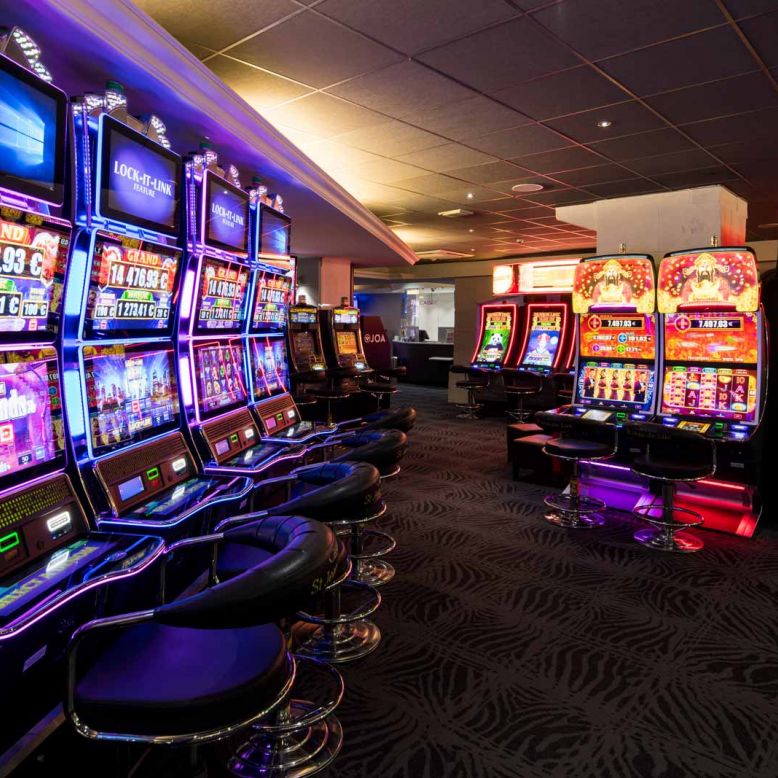
In the dynamic world of betting, gambling house games have long enthralled the attention of gamblers around the planet. These options, spanning timeless table options like blackjack to the whirling reels of slots, offer an captivating blend of randomness and skill. While fortune undeniably plays a important role in determining outcomes, the importance of expertise in many gambling activities cannot be overlooked. Understanding how expertise influences gameplay can elevate not only a participant’s engagement but also their chances of achievement.
As we dig into the inner workings of casino activities, it becomes apparent that some demand a robust base of understanding and strategy. Games like blackjack demand more than mere fortune; they demand critical thinking, emotional insight, and calculated decision-making. In comparison, other games, such as the roulette wheel and fruit machines, are primarily based on chance, allowing gamblers to rely exclusively on luck. This difference raises thought-provoking questions about what truly drives victory in the domain of casinos and how a participant’s abilities can tilt the balance in their benefit.
Understanding Skill vs. Luck in Casino Activities
In the sphere of casino games, the debate between skill and luck is a long-standing one. sports betting sites not on GamStop Numerous games are frequently divided into two categories: those that rely predominantly on chance, such as slot machines and the wheel, and those where skill plays a major role, like the game of poker and 21. The distinction is crucial because it influences not only gameplay strategies but also the approach players take when engaging with these games. While luck can play a decisive role in the short term, skilled players can increase their chances of winning over the extended period in skill-based games.
Skill-based games, particularly poker, demand players to understand probability, human behavior, and game theory. A seasoned poker player can analyze opponents, make strategic bets, and know when to fold, all of which can lead to greater favorable outcomes. On the other hand, in games that are purely based on chance, no amount of skill can alter the odds. This implies that while a player may win big in one session, their success may frequently be subject to the vagaries of chance results rather than any strategic expertise.
Ultimately, both skill and luck coexist in the world of casino games, forming a dynamic environment for players. Although games of chance can provide excitement and instant gratification, proficiency and strategy in skill-based games offer a deeper level of engagement for those prepared to dedicate time in honing their craft. This interplay between skill and luck defines the experiences of players and influences their relationship with the games they select to play.
The Impact of Ability on Game Outcomes
In the world of gambling games, skill plays a key role in determining the results, especially in activities where strategy and decision-making are essential. For instance, in the game of poker, competitors must analyze opponents, calculate odds, and make calculated bets to enhance their chances of winning. Unlike games that rely purely on chance, such as slot machines or roulette, poker demands an understanding of both the game mechanics and the behavior of other players, making expertise a vital component of success.
Additional skill-based games, like the game of blackjack, also emphasize the significance of player skill. Knowledge of basic tactics, card counting, and when to hit or stand can significantly influence the house edge. A skilled 21 player can reduce this edge and improve their odds of success significantly. This contrasts with activities that do not allow for such strategic play, showcasing how the level of skill directly affects the potential for favorable results.
Moreover, even within games deemed primarily luck-based, like the game of craps, the choices made by players can influence their overall performance. Choosing the right bets, understanding the likelihoods of different outcomes, and controlling one’s funds are essential aspects that can enhance a player’s experience and results. Thus, while chance remains a factor in gambling, ability can significantly affect how efficiently players navigate these settings, leading to more favorable results.
Approaches for Skillful Play in Casinos
To thrive in casino games, players must develop a strong grasp of the rules and odds involved in every game. This foundational knowledge enables individuals to make educated decisions, especially in skill-based games like Texas Hold’em and blackjack. Getting familiar oneself with game tactics, such as card counting in blackjack or recognizing wagering trends in poker, can significantly enhance a player’s odds of success. Rehearsing these strategies through practice games or low-risk games allows players to refine their skills without risking substantial amounts of money at stake.
A further key strategy is budgeting. Players should establish a budget before entering the gaming establishment and adhere to it rigorously. This involves deciding how much they are prepared to lose and setting limits on how much they will bet in each session. By keeping a regulated approach to gambling, players can sustain their play and reduce the chance of significant losses. Additionally, taking time-outs can help maintain a clear mind and prevent rash decisions that often lead to bad gameplay.
In conclusion, emotional control is crucial in the intense environment of a gambling house. Players must learn to manage their emotions, particularly during times of success or defeats streaks. Staying focused and not allowing emotions dictate gameplay can lead to more sound decisions. Techniques such as taking deep breaths or walking away from the table during intense moments can help keep composure. By cultivating a balanced state of mind, players can approach gambling games with confidence and expertise, ultimately improving their overall gaming experience and results.